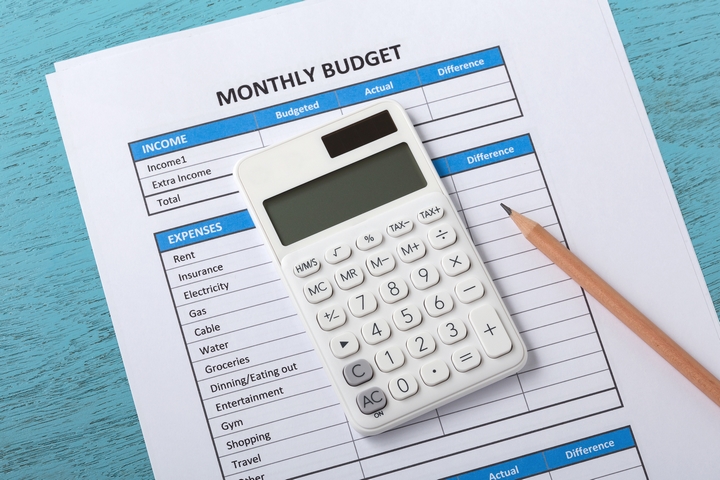As a young adult, it’s important to start thinking about your financial future early on. Your decisions can significantly impact your ability to achieve your long-term financial goals. Whether you are planning on saving for a large family, a new home, or financial stability, starting to think about budgeting, debt, and retirement can only set you up for success.
Especially at a young age, it is easy to get caught up in the present and neglect your long-term financial future. However, by keeping these tips in mind, you can start making smart financial decisions now that will set you up for success in the future. It’s never too early to start planning for your financial future. The earlier you start, the better. Remember, personal finance is a lifelong journey, not a one-time destination.
Here are some of the best financial advice for young adults to help you get started:
Financial Advice for Young Adults #1: Create a budget

This is one that we often hear; however, it’s true! The first step to managing your money effectively is to create a budget. A budget is a plan that shows how much money you have coming in and how much you have going out.
By creating a budget, you can see where your money is going and where you can make changes to save more. You can find many templates, videos, and guides online to help.
Financial Advice for Young Adults #2: Seek the advice of a financial advisor

Financial advisors can help you create a personalized financial plan and guide you through achieving your financial goals. They can help you understand your current financial situation, identify your goals, and create a plan. They can also help you navigate the complex world of financial products and services, such as investments, insurance, and taxes.
Some benefits of working with a financial advisor include: Tailored advice as a financial advisor will take the time to understand your unique financial situation and provide personalized recommendations. Objectivity is reinforced because a financial advisor is a neutral third party who can provide unbiased advice and help you avoid emotional decision-making.
Financial Advice for Young Adults #3: Work with a financial advisor in the long term

A financial advisor has access to knowledge and resources, such as a wide range of financial products, services, and information. They can help you with long-term wealth management and make informed decisions about your money. We love how they can coordinate all your financial matters by ensuring that your financial decisions align with your overall financial plan.
It’s important to note that not all financial advisors are the same, and their expertise, experience, and qualifications can vary. It’s always a good idea to check a financial advisor’s background before working with them and ensure they are registered with the proper regulatory body!
Financial Advice for Young Adults #4: Start saving early

The earlier you save, the more time your money has to grow. Even if you’re just starting, try to save a small amount of money each month. As you start earning more, you can increase the amount you’re saving!
Financial Advice for Young Adults #5: Invest in your future

Investing in your future is investing in yourself. Investing your money is one of the best ways to grow your wealth over time. Consider investing in a 401(k) or an IRA if your employer offers one. These retirement accounts offer tax advantages and compound interest to help your money grow faster. I know this sounds scary, especially as a young adult, but looking into them now will only allow your money to grow.
Financial Advice for Young Adults #6: Eliminate debt

Ah, the record-high student debt. Debt can be a heavy burden that can prevent you from achieving your financial goals. Start by paying off high-interest credit card debt and then work on paying off other types of debt. We recommend working this into your budget to ensure you are accounting for debt as one of your expenses.
Financial Advice for Young Adults #7: Understand and improve your credit score

Your credit score is a three-digit number that represents your creditworthiness. It’s used by lenders, landlords, and insurers to determine the risk of lending or insuring you.
You can improve your credit score by paying your bills on time, keeping your credit card balances low, and limiting new credit applications. We recommend you download a (trustworthy) application on your phone, put in your information, and let them give you insights.
Financial Advice for Young Adults #8: Learn from your mistakes

We all make financial mistakes, but it’s important to learn from them and not repeat them. If you make a mistake, don’t beat yourself up about it. Instead, use it as an opportunity to learn and make better financial decisions in the future. After all, we are all human! Whether you have made a decision that set you back a couple of months on your budget or failed to pay back a credit card debt, it will be alright.

